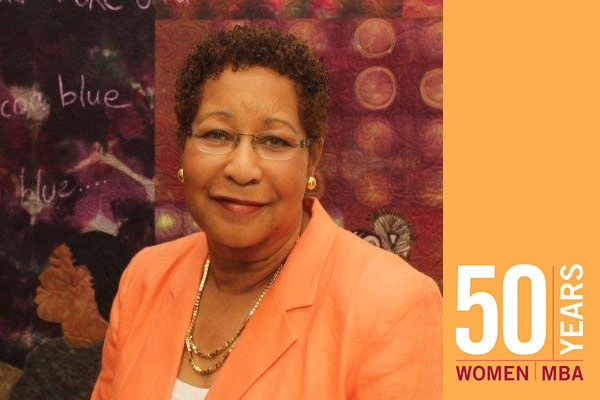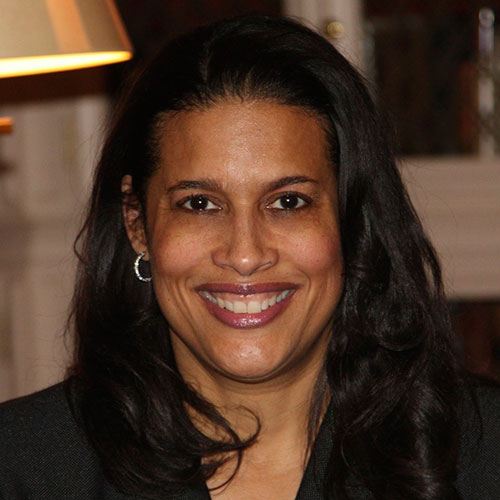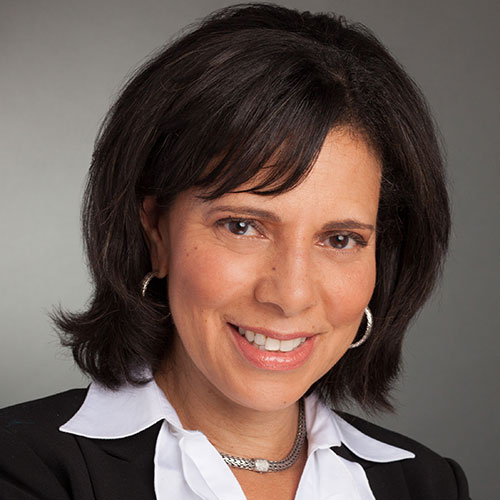
C. Pat Alsup
Biography
C. Pat Alsup, a native of St. Petersburg, Florida, is a career member of the US Foreign Service and is currently the US Ambassador to The Gambia. The path to appointment by President Barack Obama as a US Ambassador was one she never dreamed of while at HBS, but she has embraced it for the past 25 years, as it has enabled her to serve her country and contribute to positive change in other countries, especially in Africa.
What impact did HBS have on your life and the life of others?
I think my interest in traveling and experiencing new cultures began in elementary school, when I took German in a summer program at one of the local colleges in my hometown of St. Petersburg, Florida. The theory was that younger people could learn languages more easily than adults by simply speaking it, without worrying so much about grammar—so that’s what we did. And when I was 12, I actually went to Germany with the professor and some of the other students and spent two months living in hostels and exploring that country, along with the Netherlands and Austria.
I was a relative latecomer to the State Department, joining the Foreign Service in 1992, some 18 years after graduating from HBS. The path from “Junior Foreign Service Officer” to Ambassador was not without challenges. I was one of only two African Americans in my entry class of 40, which was my first clue that I would have to constantly prove myself, work harder, and be better than my white colleagues. One of the things I love about the Foreign Service is that you essentially change jobs every two to three years. But that is also one of the biggest challenges, because it means that with each new assignment you have to prove yourself all over again. When I expressed interest in the assistant financial attaché position in Mexico City, I was told I wasn’t qualified for the position by someone who had no idea that I had an MBA from Harvard—the only thing he knew about me was that I was African American and a woman. In another instance, I had a white male direct report who fought me from the day I arrived on the job—if I said left, he said right. In another instance, after I was promoted to the Senior Foreign Service, a white female colleague suddenly became hostile towards me. I weathered these and other challenges along the way through the support and encouragement of good mentors. My mentors—who were white and black, male and female—were wonderful sounding boards who helped me get that job in Mexico City and guided me to take challenging assignments that positioned me for promotions.
My Harvard MBA has been fundamental to my current position as US Ambassador to The Gambia and all of those that came before it. It’s a degree that opens so many doors because it is synonymous with a way of thinking that analyzes situations thoroughly, quickly separates the wheat from the chaff, and develops innovative solutions that often not only solve the immediate problem, but also create systems and mechanisms that ward off future problems. Those skills are practical, durable and effective—they are a recipe for success in any organization.
And thanks to the case method, I don’t have any problem making decisions and taking action quickly, which is often part of being an ambassador. In late 2016 and early 2017, in the midst of a tense political crisis that occurred when the incumbent president refused to accept electoral defeat, I had to make many tough decisions quickly. We slept in the Embassy for a few days, concerned that violence might break out. At one point, the Gambian National Intelligence Agency (NIA), an agency renowned for its brutality, threatened some of the additional security I had called in during the crisis. I could have sent the security personnel home, but I chose instead to confront the NIA and demand that the extra security be allowed to stay. The NIA backed down. This was just one of many tense moments during my first year as ambassador, but thankfully, the crisis was resolved peacefully, a new democratic government was ushered in, and I now have the pleasure and reward of working with a new government to help rebuild a country whose people and resources were abused and neglected for so many years.
As you consider your own future, the best advice I can offer to young black women entering HBS is to embrace every part of your time there. Participate in class—your unique perspective will enhance the learning experience for everyone. Get to know your section mates—you may want to hire one of them one day. Even if you’re sure you will have a career in finance, work just as hard at learning marketing—as you move up the ladder, you will need to be comfortable with all aspects of your organization.
Finally, don’t let the “business” in HBS limit your career options. Consider other paths, including public service. Don’t be afraid to take the road less traveled. Don’t be afraid to change course. Don’t be afraid to fail. And whatever path you choose, be sure to keep learning, have fun, and see the world.

